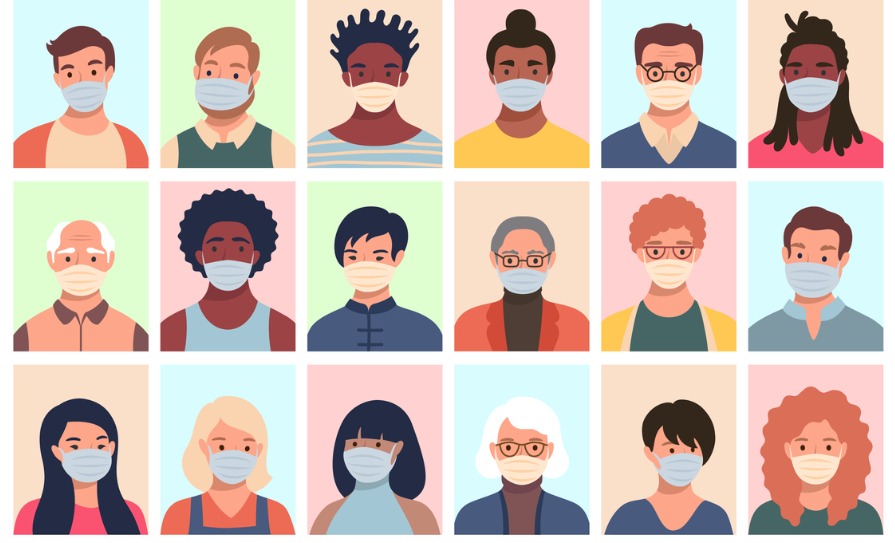New research confirms that lingering Covid-19 concerns are continuing to impact access to healthcare, which may have a longer-term impact on people’s health due to missed diagnoses. Of those surveyed, over a third of all adults are in some way worried about the possibility of a missed diagnosis due to the impact of Covid-19. The research also reveals that almost one-third (32 per cent) of people with an underlying condition are nervous about being in a hospital setting this winter.
The research, undertaken as part of the annual Pfizer Health and Science Index, asked respondents about their direct experience of Covid-19, their general health, and attitudes to science. Of the respondents who have had Covid-19 at least once, 80 per cent had it in 2022, with the highest incidence occurring between January and April 2022 (45 per cent). The research also revealed that 15 per cent of people with an existing health condition, who tested positive for Covid-19, feel that their health has deteriorated as a result, with this figure increasing to one-in-five people (21 per cent) amongst those aged 18-to-24.
COST OF LIVING
In addition to the Covid-19 pandemic, the Index also asked the general public about the cost-of-living and its potential impact on access to healthcare: Three-in-10 adults say they are less likely to go to the doctor this winter specifically due to the cost-of-living crisis, with younger age groups aged 18-to-24 (49 per cent) more likely to put off a doctor’s visit because of these concerns. Worryingly, a fifth of all respondents confirmed they have already put off a trip to the doctor this year due to cost-of-living concerns.
While people in Ireland are generally quite positive about their health, scoring themselves 6.9 out of 10, the annual Index has captured a gradual decline in this positive sentiment over a number of years. On average, Irish adults are concerned about developing a number of illnesses as they age (more than four are mentioned on average), with cancer, heart disease, arthritis and Alzheimer’s topping the list of concerns. More than half the adult population (56 per cent), and two-thirds of women, are concerned about developing a form of cancer.
Looking at attitudes to science, with 40 per cent of respondents studying science up to leaving certificate, and 20 per cent at third level, more than three-quarters (77 per cent) believe there should be more focus on science subjects in primary school. There is general acknowledgement that STEM qualifications boost employability (56 per cent), but equally a growth in the perspective that STEM courses necessitate high leaving certificate points and are difficult third-level courses to get into (51 per cent). Four-in-10 (41 per cent) of younger adults (aged 18-to-24) feel that Ireland has more STEM opportunities in comparison to other countries.
DELAYED DIAGNOSES
Ms Rachel Morrogh, Director of Advocacy and External Affairs, Irish Cancer Society, commented: “While we are very concerned to see a third of people say that they are considering putting off a healthcare appointment this year due to the cost-of-living, we are unfortunately not surprised by this. We are yet to see the true impact of Covid-19 in terms of delayed cancer diagnoses, and with cost-of-living concerns adding yet another barrier to healthcare access, a lot of people who should be going to the doctor and getting an early diagnosis may not go, further escalating the scale of this issue. We implore anyone who needs to make an appointment with their healthcare provider to do so without delay. Please put your health first.”
Mr Chris Macey, Head of Advocacy, Irish Heart Foundation, added: “The research shows that close to half (45 per cent) of people who suffer from heart disease state it has a moderate-to-severe impact on them, while 44 per cent of those with high/low blood pressure also report a moderate-to-severe impact. Irish adults also continue to rate developing heart disease as a major future health concern. It’s important to emphasise that up to 80 per cent of cardiovascular disease is preventable. Through actions such as controlling blood pressure and cholesterol levels, maintaining a healthy weight, eating a healthy diet, getting regular exercise, limiting alcohol intake, and not smoking, we can all minimise our risk of heart disease and stroke. As we age, taking proactive lifestyle steps under the advice of a qualified healthcare provider can help us all address the significant concerns highlighted in this research.”
The research was commissioned by Pfizer Healthcare Ireland.







